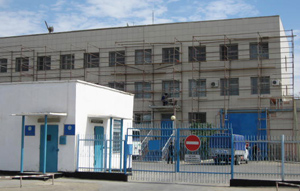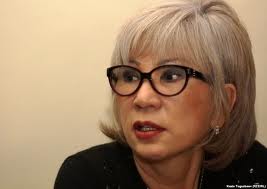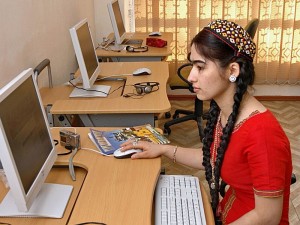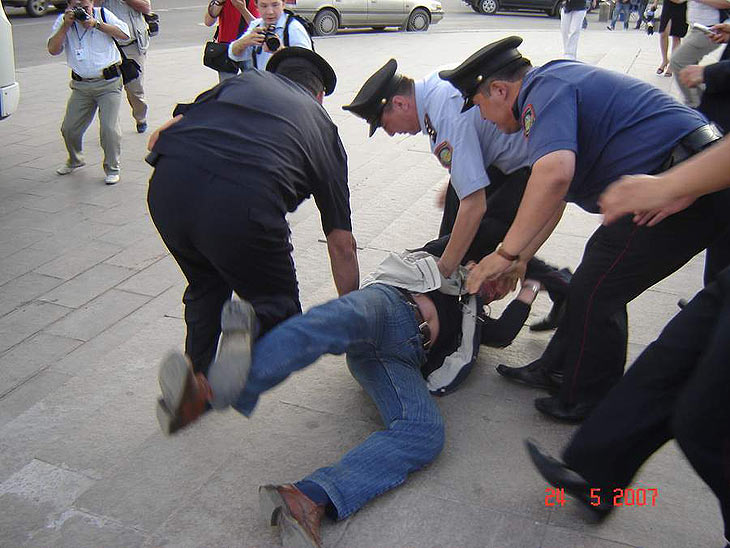 Twenty years ago, when Kazakhstan declared its independence, it enshrined human rights in its constitution, specifically under Article 1, recognising “a human, his life, rights and freedoms as supreme values of the state.” The collapse of the Soviet Union provided a chance to start afresh as an independent democratic state, but with the collapse arose the challenges related to the ability to overcome totalitarian traditions. Kazakhstan joined several international intergovernmental organisations, including the United Nations (UN) and the Organisation for Security and Cooperation in Europe (OSCE), and ratified human rights treaties and committed itself to those organisations’ principles which oblige it, inter alia, to ensure the observance of the right to freedom of expression as part of the International Covenant for Civil and Political Rights. This includes the freedom to seek, receive and impart information and ideas of any sort, regardless of their frontiers. In 2010, Kazakhstan was elected as the chair of the OSCE and it recently applied for membership of the UN Human Rights Council. However, for the last 20 years, Kazakhstan has made little progress in putting concrete and primary measures in place for necessary reforms to ensure the protection and promotion of freedom of expression in practice. The commitments Kazakhstan promised to fulfil before its OSCE Chairmanship remain unfulfilled. To date, not one existing media outlet can be considered to be independent or free. Intimidation and censorship, including self-censorship, remain a big threat as journalists continue to be attacked and face criminal and civil lawsuits for criticising the Kazakh authorities.
Twenty years ago, when Kazakhstan declared its independence, it enshrined human rights in its constitution, specifically under Article 1, recognising “a human, his life, rights and freedoms as supreme values of the state.” The collapse of the Soviet Union provided a chance to start afresh as an independent democratic state, but with the collapse arose the challenges related to the ability to overcome totalitarian traditions. Kazakhstan joined several international intergovernmental organisations, including the United Nations (UN) and the Organisation for Security and Cooperation in Europe (OSCE), and ratified human rights treaties and committed itself to those organisations’ principles which oblige it, inter alia, to ensure the observance of the right to freedom of expression as part of the International Covenant for Civil and Political Rights. This includes the freedom to seek, receive and impart information and ideas of any sort, regardless of their frontiers. In 2010, Kazakhstan was elected as the chair of the OSCE and it recently applied for membership of the UN Human Rights Council. However, for the last 20 years, Kazakhstan has made little progress in putting concrete and primary measures in place for necessary reforms to ensure the protection and promotion of freedom of expression in practice. The commitments Kazakhstan promised to fulfil before its OSCE Chairmanship remain unfulfilled. To date, not one existing media outlet can be considered to be independent or free. Intimidation and censorship, including self-censorship, remain a big threat as journalists continue to be attacked and face criminal and civil lawsuits for criticising the Kazakh authorities.
Criminal defamation
 The Kazakh Criminal Code retains provisions for insult and defamation, including those protecting the president, MPs, state officials and members of the judiciary. The institute of administrative prejudice established by the law “On introducing changes and amendments to some legislative acts of the Republic of Kazakhstan related to the issues of further humanisation of criminal legislation and Strengthening Guarantees of the Rule of Law in Criminal Procedures” in February 2011, cannot be used in practice, because the Kazakh parliament failed to make corresponding changes to the Code of Administrative Offence. As a result, over the previous two months, two more journalists have received a criminal sentence for defamation. On 19 October 2011, Kuanbek Botabekov, chief editor of the Adilet newspaper, received a one and a half year conditional sentence by the Al-Farabi district court in Shymkent, under Article 129 of the Criminal Code of Kazakhstan. The court also ordered the chief editor to pay 300,000 KZT (approx. 2,000 USD) in damages and to retract the publication. The private complaint was filed by the two brothers, Kenes and Bakitbek Nakipbekov, following the publication of articles entitled “Mr. Kenes, which team do you play for?” and “Dear valued Mr. President.” In his articles, the journalist expressed his suspicions that one of the brothers, Bakitbek who is the chief of the inter-regional land inspection for Southern Kazakhstan in the Zhambyl and Kyzylorda regions and who ran for a seat in the Senate, was involved in corrupt practices. The other brother, Kenes, who chairs “Ontustik,” the inter-regional transport inspection office, became the subject of his journalistic investigation for the solicitation of bribes through blackmail to provide more beneficial working conditions.
The Kazakh Criminal Code retains provisions for insult and defamation, including those protecting the president, MPs, state officials and members of the judiciary. The institute of administrative prejudice established by the law “On introducing changes and amendments to some legislative acts of the Republic of Kazakhstan related to the issues of further humanisation of criminal legislation and Strengthening Guarantees of the Rule of Law in Criminal Procedures” in February 2011, cannot be used in practice, because the Kazakh parliament failed to make corresponding changes to the Code of Administrative Offence. As a result, over the previous two months, two more journalists have received a criminal sentence for defamation. On 19 October 2011, Kuanbek Botabekov, chief editor of the Adilet newspaper, received a one and a half year conditional sentence by the Al-Farabi district court in Shymkent, under Article 129 of the Criminal Code of Kazakhstan. The court also ordered the chief editor to pay 300,000 KZT (approx. 2,000 USD) in damages and to retract the publication. The private complaint was filed by the two brothers, Kenes and Bakitbek Nakipbekov, following the publication of articles entitled “Mr. Kenes, which team do you play for?” and “Dear valued Mr. President.” In his articles, the journalist expressed his suspicions that one of the brothers, Bakitbek who is the chief of the inter-regional land inspection for Southern Kazakhstan in the Zhambyl and Kyzylorda regions and who ran for a seat in the Senate, was involved in corrupt practices. The other brother, Kenes, who chairs “Ontustik,” the inter-regional transport inspection office, became the subject of his journalistic investigation for the solicitation of bribes through blackmail to provide more beneficial working conditions.
Civil defamation
 Concerns remain about civil defamation claims, because plaintiffs can seek and be awarded excessive compensations for damages. For example on 9 December 2011 chief editor of the opposition websitewww.guljan.org Gulzhan Yergaliyeva (formerly chief editor and owner of the Svoboda Slova newspaper) was ordered by court to pay five million KZT (approx. 33,800 USD) in damage to Saltanat Akhanova, the wife of the head of the state agency dealing with corruption and other financial crimes, and publish a retraction. The lawsuit for protection of honour and dignity followed the publication of articles on the website www.guljan.org that reported Akhanova had millions of US dollars in her foreign accounts, in particular in a bank in Dubai, as well as possibly having other accounts in Swiss banks. In her lawsuit, Akhanova sought around 2,640,296,400 KZT (approx. 17,800,000 USD) in moral damages.
Concerns remain about civil defamation claims, because plaintiffs can seek and be awarded excessive compensations for damages. For example on 9 December 2011 chief editor of the opposition websitewww.guljan.org Gulzhan Yergaliyeva (formerly chief editor and owner of the Svoboda Slova newspaper) was ordered by court to pay five million KZT (approx. 33,800 USD) in damage to Saltanat Akhanova, the wife of the head of the state agency dealing with corruption and other financial crimes, and publish a retraction. The lawsuit for protection of honour and dignity followed the publication of articles on the website www.guljan.org that reported Akhanova had millions of US dollars in her foreign accounts, in particular in a bank in Dubai, as well as possibly having other accounts in Swiss banks. In her lawsuit, Akhanova sought around 2,640,296,400 KZT (approx. 17,800,000 USD) in moral damages.
Digitalization
 On 16 June 2006, 104 countries signed the Geneva Agreement, which requires parties to switch from analogue to digital broadcasting by 2015. The countries party to the Agreement should stop broadcasting analogue television signals and switch to digital TV broadcast frequencies.The switch to digital broadcasting will impose an additional financial burden on people, since they will have to purchase digital converter boxes (commonly known as decoders) which, for many of them, will be unaffordable. The changes will be especially painful for those who reside in rural regions, whose economic status is worse than that of urban residents.The criteria used for allocating frequencies remain unclear and it is feared that the process will be biased. Furthermore, Kazakhstan’s switch to digital broadcasting will impose an additional financial burden on television stations based in the different regions. In their set up, they have already paid fees for the unlimited use of analogue frequencies.
On 16 June 2006, 104 countries signed the Geneva Agreement, which requires parties to switch from analogue to digital broadcasting by 2015. The countries party to the Agreement should stop broadcasting analogue television signals and switch to digital TV broadcast frequencies.The switch to digital broadcasting will impose an additional financial burden on people, since they will have to purchase digital converter boxes (commonly known as decoders) which, for many of them, will be unaffordable. The changes will be especially painful for those who reside in rural regions, whose economic status is worse than that of urban residents.The criteria used for allocating frequencies remain unclear and it is feared that the process will be biased. Furthermore, Kazakhstan’s switch to digital broadcasting will impose an additional financial burden on television stations based in the different regions. In their set up, they have already paid fees for the unlimited use of analogue frequencies.  This money will not be returned after the digitalisation process is complete, and they will no longer be able to make use of analogue frequencies. All of them will be included in multiplex only for the period of transition, i.e. until 2015. Even though digital technologies allow all of the existing as well as future TV and Radio stations to occupy available frequencies, the authorities insist on the need to hold a competition to get into the digital multiplex, that will likely exclude many television stations from digital broadcasting.
This money will not be returned after the digitalisation process is complete, and they will no longer be able to make use of analogue frequencies. All of them will be included in multiplex only for the period of transition, i.e. until 2015. Even though digital technologies allow all of the existing as well as future TV and Radio stations to occupy available frequencies, the authorities insist on the need to hold a competition to get into the digital multiplex, that will likely exclude many television stations from digital broadcasting.
As a result, this may leave people previously served by analogue signals with only a restricted ability to access information about the developments in their regions. The lack of access to current news events because of the forced changes to digital broadcasting could be used to the government’s benefit as it becomes a measure serving to control the flow of information to those who cannot broadcast in, or receive, the digital frequencies.
ARTICLE 19 calls on the Kazakh government to show its genuine commitment to human rights and freedom of expression in particular by:
Ensuring emergency measures do not unnecessarily limit the rights to freedom of expression information
Immediately undertake an independent investigation into the violent clashes between police and protesters in Zhanaozen
Removing all provisions on crimes of insult and defamation in the Criminal Code, including those protecting the president, Members of Parliament, state officials and members of the judiciary
Providing, through the defamation reform for the Civil Code defences for reasonable publication and opinion
Including the regulation on a cap on the amount that can be sought for damages in civil defamation lawsuits
Ensuring that blocking access to websites is not arbitrary or indiscriminate.
Revising the draft law on Access to Information to ensuring full respect for freedom of expression
Related Stories
Kazakhstan: President should return restrictive laws to parliament
Kazakhstan: security versus civil liberties
Kazakhstan: NHC calls for release of lawyer Sokolova





